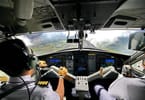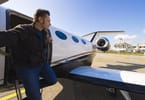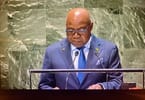SYDNEY – Qantas Airways Ltd. said Monday that it expects to return to profitability this fiscal year as an increased number of passengers, particularly on domestic routes, allows the airline to raise airfares and boost capacity.
Australia’s national carrier is recovering faster than its global counterparts due to a strong local economy and helped by its dual-brand flying strategy incorporating discount carrier Jetstar, which has allowed it to better manage revenue and cost pressures compared with global airline losses estimated at US$11 billion this year.
Qantas said it expects profit before tax of between A$50 million and A$150 million for the six months ended Dec. 31. While well down from its interim profit before tax of A$288 million last year, it represents an improvement on its second half fiscal 2009 loss of A$107 million when declining passenger numbers led to heavy discounting of fares.
Qantas said that as a result of improved domestic demand it will begin restoring to its network some flying capacity that had been removed over the last 18 months as it faced firstly record fuel prices followed closely by softer passenger demand due to the global financial crisis.
Less than two weeks after its discount arm Jetstar said it would add around 700,000 annual seats to its domestic network by July, Qantas said it plans to add around 340,000 more annual seats to its mainline domestic operations from March 2010.
“We are seeing some improvements in domestic demand and so the time is right to begin restoring capacity to ensure we are well placed to meet that demand,” said Qantas Chief Executive Alan Joyce in a statement.
“The changes will see the addition of a total 19 return services across selected routes, while capacity will be restored on others by upgrading from Boeing 737 to larger Boeing 767 aircraft,” said Joyce.
Morgan Stanley analyst Philip Wensley said he expects upgrades to a consensus forecast for Qantas’ fiscal 2010 profit before tax of around A$443 million, with conditions expected to improve further in the second half.
“We believe 2H10 will likely be better than 1H10 as it will include benefits of improving economic conditions, recent domestic and international ticket price rises, reduction in the percentage of discounted tickets sold earlier in 2009, and increased benefits from Qantas’ cost-cutting initiatives,” said Wensley in a note to investors.
“Operating conditions have improved when compared to the second half of the 2008-09 financial year with passenger volumes and yields improving,” Qantas said in a statement.
The airline said for the five months to November, yields, a measure of average ticket prices, are still down 8.9% on domestic flights and 23.2% lower on international flights compared with a year earlier.
However after isolating the monthly performance, Morgan Stanley’s Wensley said the statistics show “clear signs of a recovery”, particularly domestically.
Wensley estimates that domestic yields fell just 3.6% in November compared with a year ago, following declines of 5% in October and over 10% in September. While Wensley estimated yields on international routes during November were still about 19% below their year ago levels, he said this was an improvement from October, when they were down nearly 25% on-year.
He expects this improvement to continue after Qantas has implemented two increases in domestic ticket prices over the last few months and last week lifted prices on many of its international routes by up to 5%.
Wensley reiterated his Buy rating and A$3.45 target price on the airline, adding the first half guidance gave him more confidence in his fiscal 2010 profit before tax forecast of A$585.9 million.
The guidance came as Qantas unveiled that it carried 3.48 million passengers in November, up 9.7% from a year earlier, as passenger demand continued to improve across Jetstar and its domestic and regional networks.
However its mainline international business saw continued weakness in demand with passenger numbers down by 23% from a year ago.
Revenue seat factor across the group, a measure of how many seats it fills across its domestic and international flights during the month, was up 4 points to 82.3%.
Qantas did not provide guidance for full year earnings, warning that “high levels of volatility in the economic outlook, industry capacity, passenger demand, fuel prices and exchange rates continue.”
هن آرٽيڪل مان ڇا وٺو:
- Qantas said that as a result of improved domestic demand it will begin restoring to its network some flying capacity that had been removed over the last 18 months as it faced firstly record fuel prices followed closely by softer passenger demand due to the global financial crisis.
- said Monday that it expects to return to profitability this fiscal year as an increased number of passengers, particularly on domestic routes, allows the airline to raise airfares and boost capacity.
- He expects this improvement to continue after Qantas has implemented two increases in domestic ticket prices over the last few months and last week lifted prices on many of its international routes by up to 5%.






















